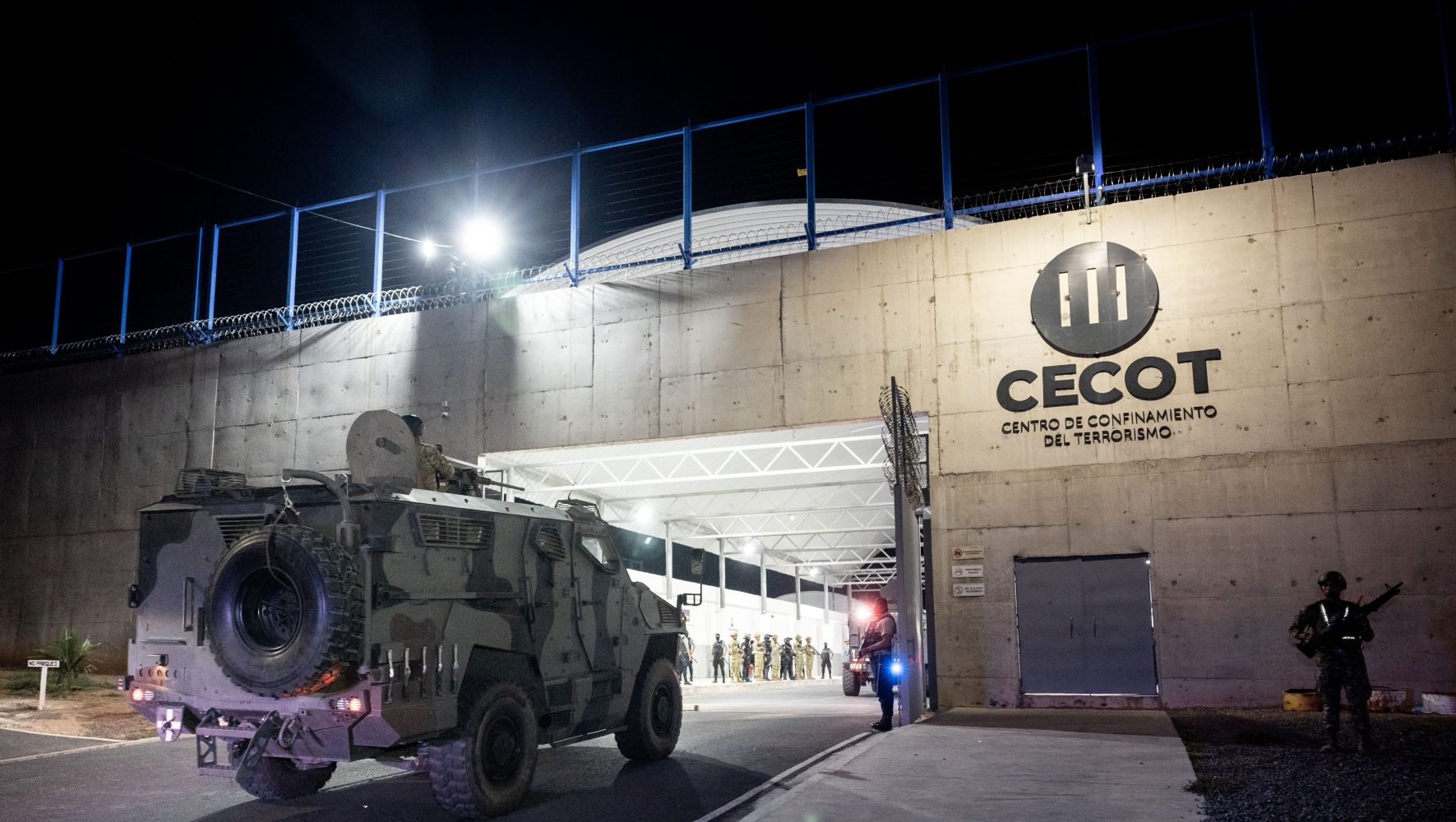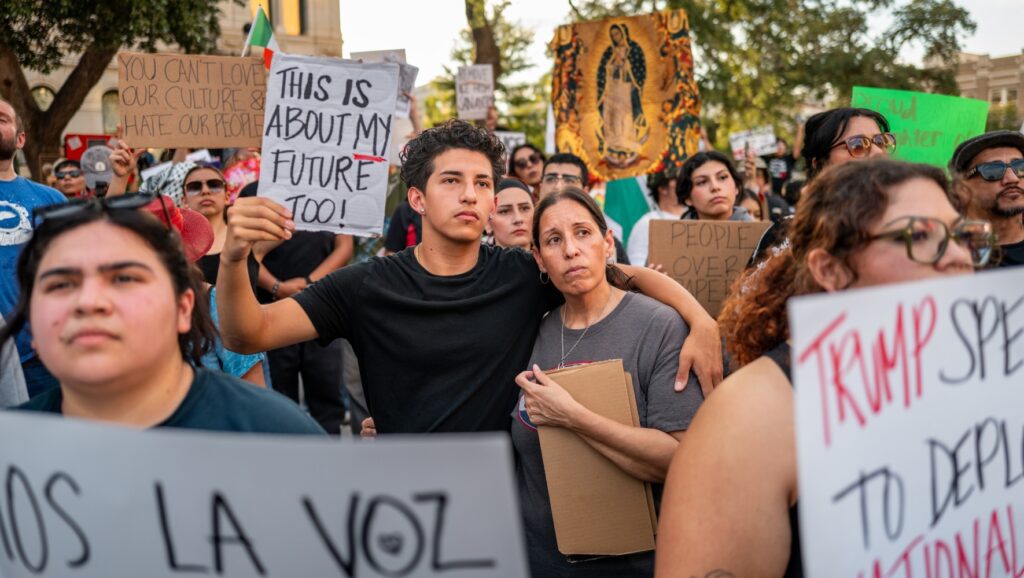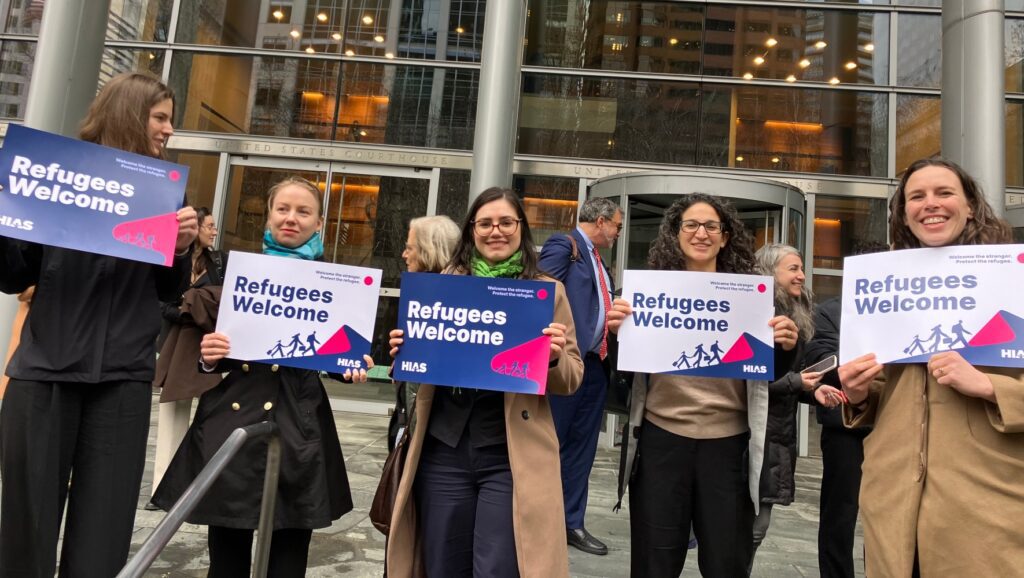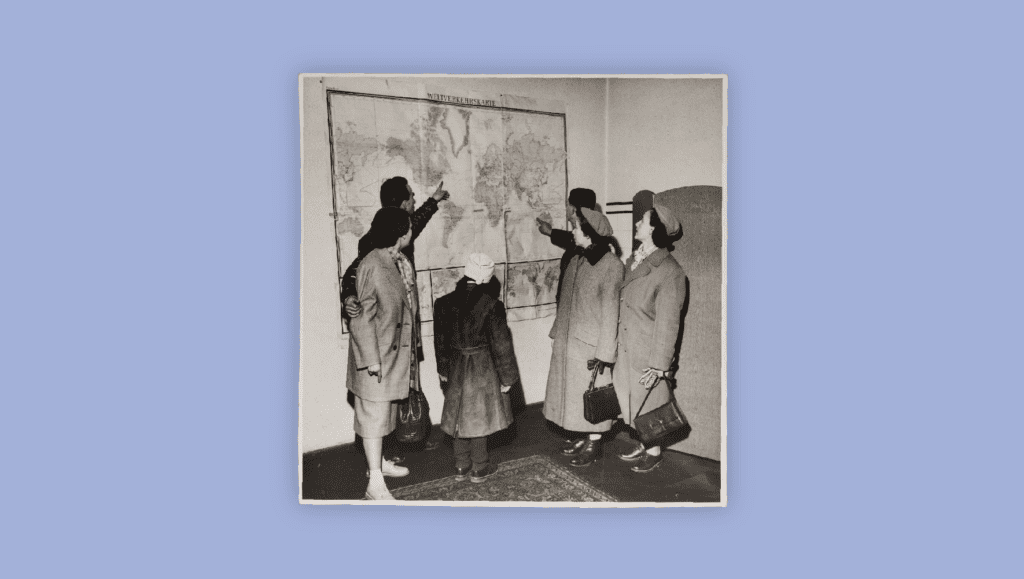
Since taking office, President Trump has issued hundreds of executive orders, memoranda, and proclamations, many of which pertain directly to immigration, asylum, and refugee resettlement. These actions, along with additional executive orders and legislation, have reshaped United States immigration policy in a significant way.
HIAS has launched a series summarizing important developments and explaining what they mean. These recap posts, along with relevant articles, statements, and resources, can be found at a page we’ve built to track the new administration’s effect on displaced people.
This week, we review how actions recently taken by the Trump administration impact refugees and other displaced people.
Supreme Court Temporarily Blocks Removal of Venezuelans Under Alien Enemies Act
What happened: On April 18, the Supreme Court temporarily blocked the deportation of 50 Venezuelans scheduled to be flown out of the country from Anson, Texas. The potential deportees were only provided with a brief, one-page notice in English that contained no information on how they could contest their deportation. The 7-2 order by the Court applies only to those in Anson; a more detailed order to supplement the temporary pause is likely forthcoming.
Elsewhere, a judge in Colorado ordered on Tuesday that individuals detained in Colorado must receive notice at least 21 days in advance before they are removed under the Alien Enemies Act. The notice must be in Spanish and allow for individuals to seek judicial review and speak to an attorney prior to their deportation.
On Tuesday, President Trump said that noncitizens should not receive due process before their deportation because he thinks that the prospect of providing trials to these individuals takes too long.
What it means: The Trump administration’s efforts to deport individuals without any due process under the Alien Enemies Act has been stymied by a string of court orders. A handful of judges have also found that the Alien Enemies Act does not apply to alleged members of the Venezuelan gang Tren de Aragua because the U.S. has not been invaded by a foreign nation or government, as required under the Act.
Since the U.S. Supreme Court’s order requiring that these individuals receive a modicum of due process and sufficient notice, the Trump administration has shown resistance to comply and repeatedly attempted to evade judicial review by transferring individuals to detention centers where legal representation is largely inaccessible. This has very serious implications not only for U.S. immigration policy, but for U.S. democracy in general.
Give today
Discovery in the Kilmar Abrego Garcia Case Temporarily Paused
What happened: We saw several new developments in the case of Kilmar Abrego Garcia, the Maryland man who remains incarcerated in El Salvador following his illegal deportation in what the Trump administration termed an “administrative error.” On Wednesday, District Judge Paula Xinis paused the discovery process in the case until April 30, citing an undisclosed agreement between the two parties. The pause came a day after Judge Xinis reprimanded the government in an order requiring the production of detailed evidence about what, if anything, is had done to comply with the U.S. Supreme Court’s order to “facilitate” Garcia’s release from custody in El Salvador.
Earlier this week, four Democratic lawmakers traveled to El Salvador to unsuccessfully advocate for Garcia’s return. The U.S. government has reported that Garcia is in “good health” and was transferred out of the high-maximum security Terrorism Confinement Center (CECOT) to another facility.
What it means: Despite increased attention from Democratic Party lawmakers, the general public, and the media, Kilmar Abrego Garcia remains unlawfully incarcerated in El Salvador. There are no signs that the Trump administration will comply with several court orders to facilitate his return. The fate of Garcia has implications for U.S. citizens and noncitizens alike who must now contend with the frightening possibility of illegal and secretive deportation to a foreign prison without due process and an opportunity to contest their removal.
El Paso Mass Shooter Sentenced to Life in Prison
What happened: The man responsible for the murder of 23 Hispanic individuals during a mass shooting at an El Paso, Texas Walmart in 2019 was sentenced to life in prison on April 21. The mass shooting, which targeted Latinos, was a racially motivated hate crime committed by a man who had driven 700 miles from Allen, Texas, to commit mass murder.
What it means: The El Paso mass killing was an extreme manifestation of hateful rhetoric toward immigrants that has become far more prevalent in the last decade of American life. Anti-immigration zealots have falsely characterized migration as an “invasion” and have demonized entire communities of noncitizens, refugees and asylum seekers. In the aftermath of the shooting, HIAS and our network of pro bono attorneys in El Paso provided services to those affected by the shootings.



